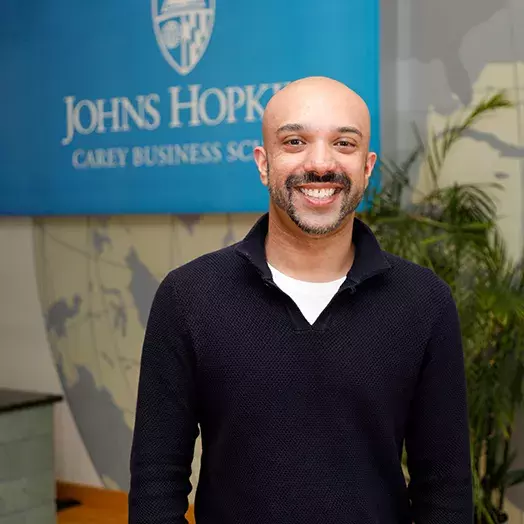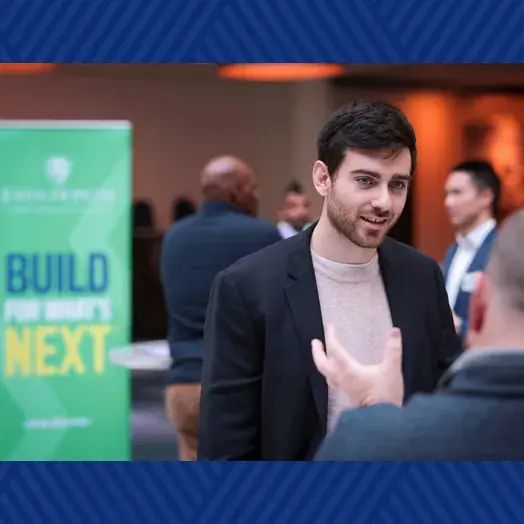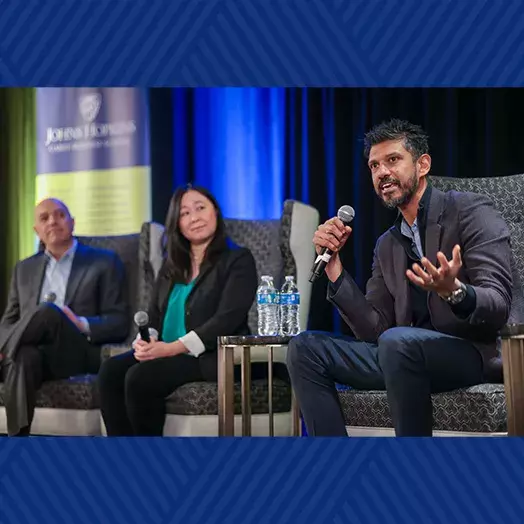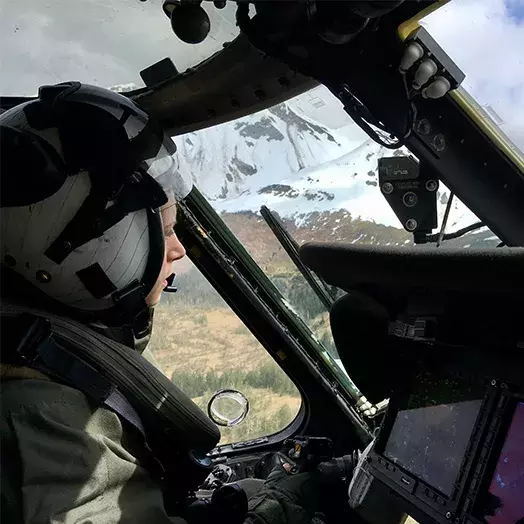
Alleviating social deprivation resonates with Carey student
Flexible MBA candidate says program work has 'left an indelible mark on my life.'
For Arsalan Jafree, the desire to work with underserved populations has taken root firmly and profoundly during his time at the Johns Hopkins Carey Business School.
A Flex MBA student with a concentration in Leading Organizations, Jafree, who is scheduled to graduate in May 2019, has worked for the past 11 years as a consultant for Deloitte. He enrolled at Carey to gain a business background to complement existing skills but has realized much more from his studies along the way.
“I’ve worked on some amazing projects while at Carey,” he said. “It’s left an indelible mark on my life. I didn’t realize how life-changing my experience at Carey would be.”
Jafree points to four specific examples to illustrate his transformational experience at Carey.
One was a final group project in Bloomberg Distinguished Professor Kathleen Sutcliffe’s “Power and Politics” class. Student teams were tasked with identifying a (seemingly) powerless societal group and understanding whether that group was truly powerless (or instead, powerful), and why. Jafree’s group chose to work with U.S. refugees, mainly from the Middle East – Jordan, Syria, and Lebanon – who had been in this country an average of three to four years. Interviews with many revealed a surprising amount of empowerment among those able to take care of their families, and who felt safe and secure in their new environment. The quick creation of social networks in their new communities, sometimes despite language barriers, was found to be a critical aid in assimilation. The original group hypothesis of a downcast population feeling mostly powerless proved largely unfounded.
The overall insights from the group’s research were that the resilience level of refugees can be quite high, with the capacity to be productive members of society strong “wherever they go,” according to Jafree. What stood out as especially critical is that refugees get the help they need to assimilate in those first few crucial months after their arrival in the U.S.
Another touchstone for Jafree was Associate Professor Toby Gordon’s “The Wire: Business Solutions to Urban Economic, Social and Public Health Issues” course, based on the popular HBO program. Jafree and fellow students tackled a chronic urban challenge inspired by the show – recidivism – and researched problem-solving strategies. Based on primary and secondary research, the group determined that “economics plays a huge role” in determining whether someone returns to prison. Access to employment upon release, in order to sustain oneself and one’s family, is key, yet lack of opportunities and societal barriers often conspire to make finding a job extremely difficult and re-incarceration more likely. The group’s proposed solution, inspired by a design-thinking approach, involved a temp hiring agency working with small groups of prisoners three to four months before release, identifying existing and needed skill sets, along with help in the job search, so that by release time, individuals were better able to sustain themselves and their families.
Usually, leaving prison is a very “disenfranchising experience,” said Jafree. He noted the challenge to re-assimilate in a changed world is a “daunting process” that the students’ plan strategically addressed. Their business model was well received not only by Gordon but also by the Marshall Project, a nationwide nonprofit focusing on criminal justice.
Another project (based on a course from Carey’s Design Leadership program) partnered with “YES” (Youth Empowered Society), a local social services organization in Baltimore helping at-risk youth find and maintain employment. Working directly with YES, the students proposed revamping its existing business model, achieving access to both human capital (increased staff for better client services), and recognition as a 501c organization (to enhance funding opportunities). Suggestions also included Carey students, faculty, and staff putting their skills to work (i.e., finances, grant writing, etc.) in a volunteer “Carey Corps” initiative to further aid the society. “We found a way to inject the Carey community in supporting them with what they do to be more efficient,” explained Jafree.
The final experience cited by Jafree involves Carey’s “Discovery to Market” (D2M) course, also taught by Gordon, in which students work directly with inventors and researchers to assess the commercial viability of some of the latest scientific discoveries and technological innovations from the National Institutes of Health (NIH). Jafree and his student group worked specifically with the National Institute on Drug Abuse (NIDA) on one of its projects, a mobile health app providing automated intervention to drug addicts. The team is currently assessing the feasibility of bringing the app to market at this point.
“The understanding and possible alleviation of social deprivation and social exclusion,” notes Jafree, was a central theme common to all of these projects. ”I didn’t realize that until I sat down and assessed the scope of each project, what we had accomplished. A thread runs through them.”
Jafree’s work at Carey also inspired him to open his home to area refugees on Christmas Day and to take part in pro-bono community involvement through Deloitte, which recognized his efforts with a recent profile on its website. Having mentors in Mauro Porcini (Pepsi’s chief design officer) and Musa Tariq (Airbnb Experiences’ global head of marketing) have also inspired Jafree and pushed him to convert his goals into realities.
“My life has changed so much in this space as a result of this program,” he explained. “I found this all here [at Carey] … what I wanted to do and what I’m passionate about.”


